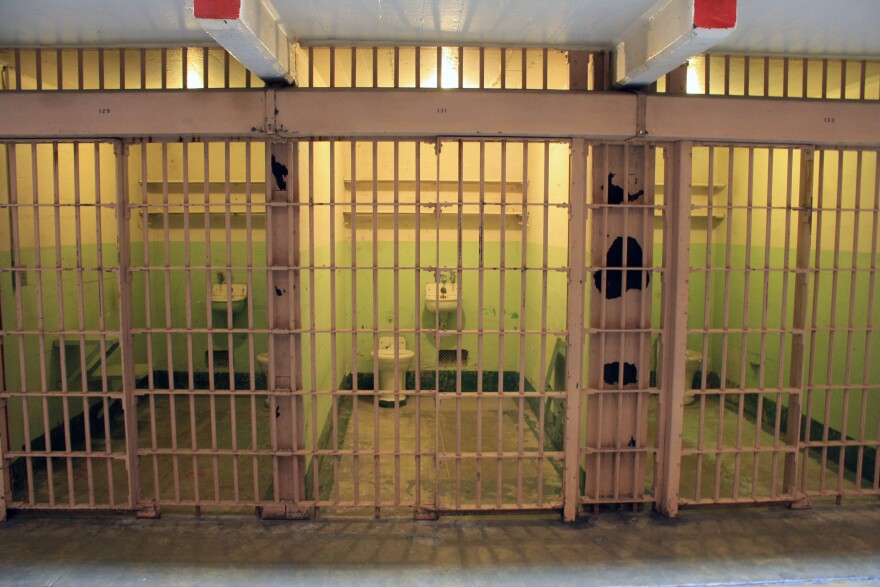Having a parent behind bars can be a traumatic experience for a child. Studies show parental incarceration can affect school achievement, health, relationships and increase a kid's risk of going to prison themselves in the future.
The number of incarcerated people in the U.S. has risen drastically over the past four decades. But this has not occurred equally across the population. African-American men are incarcerated at six times the rate of white men, and 2.5 times the rate of Hispanic men.
And because an overwhelming percentage of these men are fathers, mass incarceration is also a chief contributor to the racial achievement gap between black and white students, according to researchers at the Economic Policy Institute.
In a recent study, "Mass incarceration and children's outcomes," researchers found disproportionate imprisonment rates contribute to race-based inequalities in educational attainment.
From 1980 to 2000, the number of kids with a dad in prison or jail rose by 500%. About 45% of men in state and federal prisons, age 24 or younger, are fathers. According to a press release:
African American children are six times as likely as white children to have a parent who is or has been incarcerated. One-in-four African American students have a parent who is or has been incarcerated, and as many as one-in-ten have a parent who is currently incarcerated. Because African American children are disproportionately likely to have had an incarcerated parent, the authors argue, the United States’ history of mass incarceration has contributed significantly to gaps in achievement between African American and white students.
Although the report is heavily focused on black fathers, there has been a change in the trend of who is being arrested and jailed. The number of women in local jails has grown 14-fold since 1970 – most for non-violent offenses. And nearly 80% of these women are mothers. Holly Krig is director of organizing for Chicago-based Moms United Against Violence and Incarceration. She told The Atlantic:
The impact of incarcerated women, who are very often the sole caregiver for their children, is that those children are then displaced, and effectively punished through separation.
We've told you previously about studies that address the effects of parental incarceration on kids and how to improve outcomes for them.
The authors of this study recommend a number of policies to address the problem by reducing incarceration, including: Eliminating disparities between minimum sentences; repealing mandatory minimum sentences for minor drug offenses and other nonviolent crimes; and increasing funding for social, educational, and employment programs for released offenders.
Researchers also call on educators to make criminal-justice policy the focus of state and local advocacy. Study co-author and EPI research associate Leila Morsy told The Atlantic:
Education policymakers and many educators continue to insist that in order to narrow the achievement gap, we must tinker with what is happening in the classroom … improve the way schools are functioning. Yet making changes to criminal-justice policy can make as much, if not more, of a difference for children.
Check out the video below from The Atlantic to learn more about the disparities in mass incarceration in the U.S.:
https://www.youtube.com/watch?v=u51_pzax4M0







